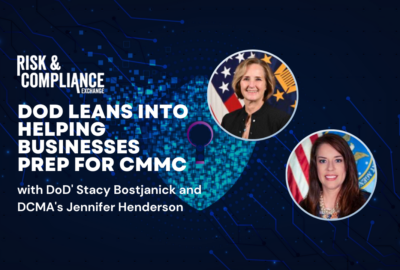GSA plans to take e-mail, collaboration to the cloud
Agency issues RFP for e-mail through software-as-a-service. GSA asks for 39 mandatory services with the hope of reducing the cost and modernizing its systems. T...
By Jason Miller
Executive Editor
Federal News Radio
The General Services Administration is putting its money where its mouth is when it comes to cloud computing.
GSA issued a request for proposals Monday to move the entire agency’s e-mail system to the cloud.
“We believe we have designed this requirement to move GSA into an innovative, creative, cost-effective and evolving environment,” writes Casey Coleman, GSA chief information officer, in the cover letter of the RFP. “The federal government believes that traditional outsourcing and system integration support is insufficiently adaptive and costly and the time is right to seek on-demand commodity services with a software-as-a-service cloud computing offering.”
GSA would not be the first agency to move its e-mail system to the cloud. The Interior Department consolidated 12 different systems and moved 80,000 users to the cloud. Interior says it expects to spend 66 percent less for e-mail services by going to the cloud.
This new effort is different from GSA’s IT modernization contract. Under this contract, the agency by July 4 plans to implement Microsoft Office 2007 across the agency, voice over IP phones, secure access to the network using Homeland Security Presidential Directive 12 cards, and enhanced remote access and network capabilities.
In the RFP, released through the Alliant unrestricted contract, GSA asks for 39 mandatory and 14 optional services to transition, deploy, operate, maintain and secure enterprisewide e-mail and collaboration in the cloud. The contract would be for one year base with four one-year options.
Among the mandatory services GSA is asking vendors to provide include systemwide security meeting the National Institute of Standards and Technology’s moderate level, identity management to GSA’s Active Directory database and e-discovery.
The e-discovery requirement is important because GSA’s current system “makes it difficult to manage and retrieve e-mails associated with legal matters.”
GSA also wants additional capabilities including instant messaging, shared document repositories and the ability to securely send messages.
“Electronic messaging has evolved over the years into an integrated messaging and collaborative environment,” the RFP states. “GSA’s current environment lacks the level of integrated features that is commercially available. GSA requires a greater use of these integrated messaging and collaborative tools to support its mission and critical position within the federal government. Additionally, GSA is seeking a solution that will reduce the government’s in-house system maintenance burden and provide GSA users with more timely implementations of new versions and features.”
GSA also wants its system administrators to have the ability to manage the cloud services “through a real-time, Web-based ‘dashboard’ capability that enables them to access the status of the services, i.e. to monitor, in real or near real time, the key performance indicators of the system against the established SLAs and promised operational parameters.”
GSA’s existing system includes several different versions of IBM’s Lotus Notes and Domino software, the RFP states.
GSA says it has 15,500 individual accounts, 9,300 of which are accessed through Blackberry PDAs. GSA says it estimates the number of accounts to grow to 30,000 over the life of the contract.
“The hardware infrastructure of e-mail servers is aging (5+ years) and requires purchase and deployment of new servers,” the RFP states. “The current e-mail infrastructure is site specific. For example, each of the seventeen locations (in the contiguous United States, Alaska, Hawaii, Belgium, Germany, Italy, Japan, and Korea) has its own set of e-mail and Blackberry servers. Further, if a regional location has power issues or becomes unusable, access to e-mail is lost for users at that location. E-mail archiving is currently implemented inconsistently, is difficult to use, and does not meet information retrieval (e-discovery) requirements. Additionally, the storage associated with e-mail archiving continues to grow and is costly to manage.”
GSA wants questions on the RFP by June 17 and final proposals are due by July 12.
For more about cloud computing from Federal News Radio’s Fed Cloud Blog, click here.
(Copyright 2010 by FederalNewsRadio.com. All Rights Reserved.)
Copyright © 2024 Federal News Network. All rights reserved. This website is not intended for users located within the European Economic Area.





